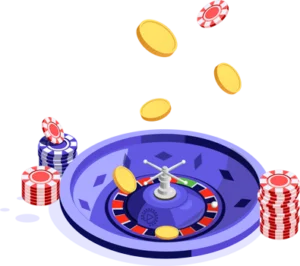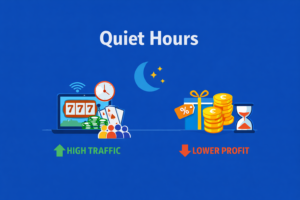Things to Avoid When Playing Caribbean Stud Poker

Caribbean Stud Poker offers an exciting blend of traditional poker strategy and casino-style play against the house. While its basic rules are straightforward, mastering the game and consistently making optimal decisions can present a learning curve for newcomers. To help you navigate the tables more effectively, we've compiled a list of common pitfalls that players often encounter. By understanding and avoiding these mistakes, you can significantly improve your chances and enhance your overall gaming experience.
Unlike traditional poker where you compete against other players, in Caribbean Stud Poker, your objective is to beat the dealer's hand. This fundamental difference means that strategies from other poker variants don't always translate directly. Success hinges on making informed decisions about when to fold, call, or raise, based on your hand and an understanding of the dealer's qualifying rules.
Key Mistakes to Avoid in Caribbean Stud Poker
Even experienced poker players can fall into common traps when transitioning to Caribbean Stud. Here are some of the most frequent errors we see, and how to steer clear of them:
Neglecting Proper Bankroll Management
One of the most critical aspects of any live casino game is managing your bankroll effectively. A common mistake is to play through your entire allocated funds too quickly, especially when chasing losses or feeling overly confident. Caribbean Stud Poker, like all casino games, has an inherent house edge. It's crucial to set limits for yourself and stick to them. Never risk more than you can comfortably afford to lose, and always keep a portion of your bankroll in reserve. Responsible play ensures you can enjoy the game without undue financial pressure.
Betting Randomly or Bluffing Ineffectively
Some players approach Caribbean Stud Poker with a haphazard betting style, making wagers based on whims or attempting random bluffs. This is a significant misstep. In this game, your primary opponent is the dealer, not other players. Therefore, the psychological element of bluffing, which is central to many poker variants, is largely ineffective here. Every bet you make should be a calculated decision based on the strength of your hand and the dealer's upcard. Relying on random bluffs will almost certainly lead to consistent losses over time, as the game's mechanics don't reward such tactics.
Overplaying Ace-Queen Hands
An Ace-Queen hand might seem strong at first glance, leading many new players to consistently call or raise with it. However, this can be a costly mistake in Caribbean Stud Poker. While Ace-Queen is a decent starting hand in some poker games, its value against the dealer is often overestimated. If the dealer qualifies with a hand stronger than Ace-King, or even a low pair, your Ace-Queen might not be enough. It's often better to fold an Ace-Queen hand, especially if the dealer's upcard doesn't suggest a weak hand on their part. Knowing when to fold, even a seemingly strong hand, is a hallmark of strategic play.
Folding Small Pairs Prematurely
Conversely, many beginners tend to fold low pairs (e.g., a pair of 2s, 3s, 4s, or 5s) believing them to be weak and unlikely to win. This is a critical error. The dealer in Caribbean Stud Poker must “qualify” with at least an Ace-King or higher to play their hand. If the dealer does not qualify, players who have called automatically win on their ante bet, and their raise bet is returned. The dealer fails to qualify nearly half the time! Therefore, holding any pair, even a low one, significantly increases your chances of winning, especially if the dealer doesn't qualify. In fact, with a low pair, it's generally advisable to raise your bet, as you have a strong chance of either winning outright or having the dealer fail to qualify.

Misjudging Ace-King Hands
An Ace-King hand is often considered the minimum qualifying hand for the dealer, making it a strong contender for players. However, new players sometimes make the mistake of raising with every Ace-King hand, regardless of the dealer's upcard. While Ace-King is a powerful hand, optimal strategy dictates that you should play it carefully. There are specific situations where folding an Ace-King might be the correct move, particularly if the dealer shows a strong upcard that makes it unlikely for your Ace-King to win, or if your Ace-King is not accompanied by a card that matches the dealer's upcard. Gaining experience and understanding basic strategy charts will help you discern when to raise and when to fold with an Ace-King.
The Importance of Continuous Learning
Ultimately, the biggest mistake you can make in Caribbean Stud Poker is not taking the time to learn and understand the game thoroughly. While the basic rules are simple, mastering the nuances of strategy, especially regarding when to fold or raise, is crucial for long-term success. There are numerous resources available online and in strategy guides that delve into optimal play for Caribbean Stud Poker. Investing time in studying these resources before you play can significantly improve your performance and enjoyment.
By avoiding these common pitfalls and focusing on a disciplined, strategic approach, you'll be well on your way to becoming a more proficient Caribbean Stud Poker player. Remember to always gamble responsibly and within your means. Explore other popular casino games like Roulette, Blackjack, Poker, or Slots, and always prioritize safe and enjoyable gaming.
Most Recent News
Get the latest information








